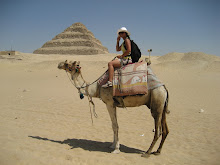I think it’s interesting to look back on great composers who have written powerful pieces and reflect on what their inspiration was; or in many cases what their frustration/distress/torment was in life. They say that music often rises from the oppressed, like jazz which began as slave-music. I’ve also heard that musicians never starve during depressions because when times are bad and life gets difficult, people of all cultures will give up many luxuries but continue to indulge in concerts and operas.
There are also those who used classical music to express hidden and mockery of political systems. Shostakovich is the first that comes to my mind. A great composer during Stalin era in the soviet union, his symphonies straddled the line between portraying the heroic red army and mockery of Stalin. His abstract dissident styles were not always liked by government officials, which caused many of his earlier works to be banned. Shostakovich, like many Russian intellectuals at the time, watched his close friends and relatives arrested, executed and exiled and lived with the constant threat of disappearing in the middle of the night with the nocturnal “knock at the door”. However, he eventually came to play the political game through classical composition. He yielded to Party pressure by composing abided by pieces in the name of praising the triumph of the red army; However hidden in his chords and progressions is an obvious disdain and mockery of the communist party and Stalin himself, turning symphonies to musical satires. In many of his symphonies what was supposed to be the soviet marching triumphantly to victory could be interpreted as the death march. The repeated underlying beats throughout his composition makes the air tense with uneasiness, reflecting the “nocturnal knock on the door.” Shostakovich pushed his critique of the Soviet regime the furthest he can without engaging in outright dissent.

There are of course many more examples in history where classical music was used to transcend borders made by political systems, mock and protest. I wonder what kinds of music resulted from the existence of the Berlin wall. How did musicians on either side perceive the wall, and more importantly how did the wall and its political history shape the development of classical music during that era.
I guess on my altar I would put scribbled music, orchestral instruments, conductor’s baton, and maybe photos of political figures at the time.
Health care access between different groups of people, East, West, Immigrants...
Another idea was to look at the health care system in east and west Germany, and the role of political division in Berlin in the divided medical system. Health insurance in West Germany was regulated by the government, but mostly administered through private insurance companies, and in East Germany, all health costs war paid by the state. I think it would be interesting to look at the doctors’ and nurses take on the unification, whether is still a division, whether patients still stick to their own side of the wall. This can also be extended immigrants, how did health care differ based on your identity as East or West, or non-German.
On the altar I would include obvious medical equipments, also passports of different people, insurance and medical paper work.
Childhood Education
I got this idea from Amy during our classroom brain storming session. It would be interesting to examine those who were entering grade school during the construction and existence of the wall, and how maybe school curriculums differed between the East and West. I remember when I was stills studying from Chinese textbooks when I was little, I had to recite essays about generous Mao and sing songs about the Red Army. Of course, I just repeated the words and when I became older and started realizing what the words were saying, I felt brain washed. I remember some songs I played on the piano, my dad wouldn’t teach me the lyrics to because he was sick and disgusted with comparing Mao to the Sun that keeps the Chinese people prosperous, healthy and good spirited. Even in college, all undergrads are required to take classes on Mao Zedong Thought and Den Xiaoping theory. Perhaps something like that was implemented in the teachings in East Berlin? And of course, how that might have differed in West Berlin. In addition, it would be interesting how the history books may have changed during the erection and fall of the wall.
On the altar, I would put school books, text books, or commercial products aimed at kids and see maybe a differences in the ways children’s toys are advertised across the wall.

All great topics and very interesting (you would find loads of information). The music discussion is good. You should check out Daniel's blog (and he should check out yours). And the east/west division and childhood topic...interesting to read about your memories and connections you might see with former east berlin education. The health care topic might be a bit more difficult to research, but it's viable too... Berlin 2008 blog has some information on health care in Berlin, Germany. more comments/resources coming...
ReplyDelete